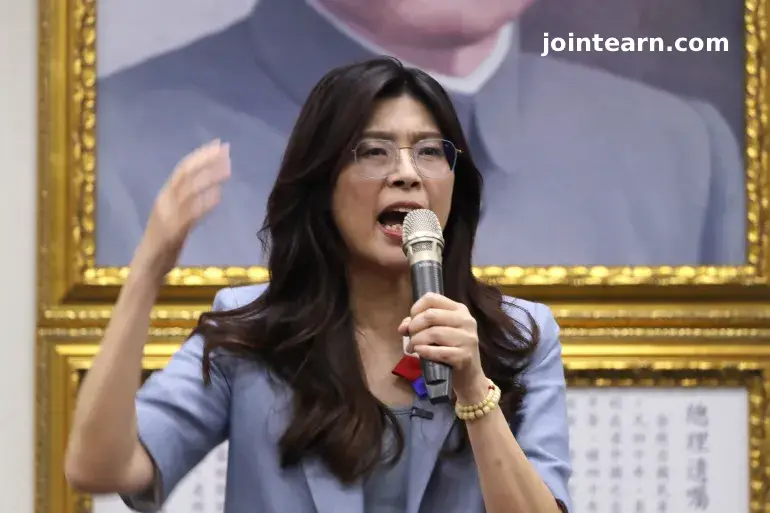
Taipei, October 19, 2025 – Taiwan’s main opposition party, the Kuomintang (KMT), has elected Cheng Li-wun as its new chairperson in a move that could reshape cross-strait relations and domestic politics. Cheng, a 55-year-old reformist and former legislator, won the election on Saturday, pledging to make peace with China while criticizing the ruling party’s high defense spending and confrontational stance toward Beijing.
Cheng will formally assume her role as party leader on November 1, succeeding Eric Chu, as the KMT looks to redefine its political identity amid growing tensions between Taiwan and China.
Reformist Vision Focused on Peace and Stability
In her victory speech at KMT headquarters in Taipei, Cheng called for calm and pragmatism in Taiwan’s approach to cross-strait relations, saying her leadership would prioritize peace, dialogue, and national unity.
“The Kuomintang will be a creator of regional peace,” Cheng declared. “We must safeguard peace across the Taiwan Strait and ensure Taiwan never becomes the sacrifice of geopolitics.”
She emphasized that the KMT should be a stabilizing force during turbulent times, describing her vision as one of “strength through peace” rather than military escalation.
“Our home must be the strongest shelter for everyone,” she said. “We will protect our people not by provoking conflict but by preventing it.”
Political Context and Legislative Power Balance
Although the KMT does not currently hold the presidency, it wields considerable influence in Taiwan’s Legislative Yuan through its alliance with the Taiwan People’s Party (TPP). Together, the two opposition parties form a majority bloc, posing significant challenges for President William Lai Ching-te and his Democratic Progressive Party (DPP) in passing key policies, including budget measures and defense initiatives.
Cheng has voiced skepticism over the DPP’s decision to significantly raise Taiwan’s defense spending, arguing that militarization could increase risks of confrontation with China. Instead, she advocates for economic resilience, social welfare, and diplomatic engagement as Taiwan’s main tools of national security.
Election Results and Allegations of Interference
Cheng secured over 50 percent of the votes, defeating former Taipei Mayor Hau Lung-bin and four other contenders. However, the internal election was marked by controversy, including allegations of Chinese interference on social media platforms.
Jaw Shau-kong, the KMT’s 2024 vice-presidential candidate and a supporter of Hau, claimed that coordinated disinformation campaigns targeted Hau’s campaign on TikTok and YouTube.
Taiwan’s National Security Bureau later confirmed it had detected over 1,000 videos and dozens of external accounts discussing the election, though it did not confirm any direct link to Beijing.
In response, Cheng dismissed the accusations as “cheap labels”, saying her victory reflected the will of KMT members, not external influence.
“We will never allow others to define us or question our loyalty to Taiwan,” she said.
Beijing, meanwhile, maintained that the election was an internal party matter, stating that comments by Chinese social media users did not represent the government’s official position.
Implications for Taiwan-China Relations
Cheng’s victory marks a potential shift in Taiwan’s political tone. The KMT, which historically supports closer economic and cultural ties with China, is expected to advocate renewed dialogue amid heightened military activity near the Taiwan Strait.
Analysts suggest that Cheng’s leadership could ease regional tensions, though her moderate approach may face pushback from younger Taiwanese voters who increasingly identify as distinct from mainland China.
“Cheng Li-wun’s leadership signals a possible recalibration of Taiwan’s China policy,” said Dr. Hsiao Ming, a political analyst at National Chengchi University. “Her challenge will be balancing peace initiatives with the growing public desire for sovereignty and democratic integrity.”

Leave a Reply